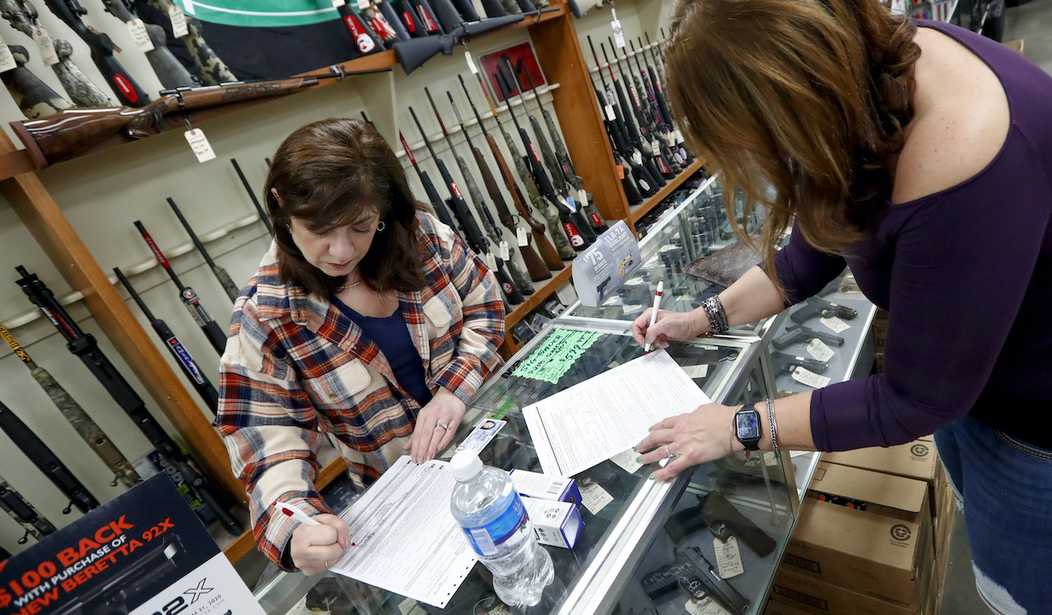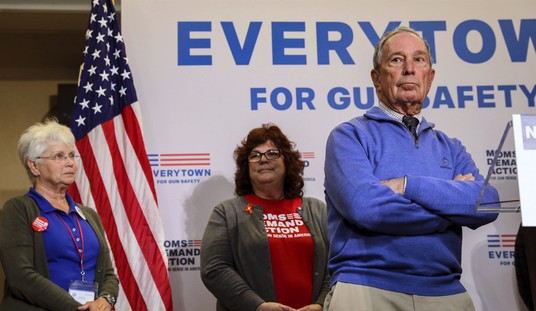Minnesota is one of several states that now have a Democrat trifecta in state government after the November elections, though the legislative majorities are razor-thin, particularly in the Senate where the Democrats have just a one-seat advantage.
So far, the caucus has stuck together on a number of contentious issues, including adding more gun control laws to the books. On Thursday, the House Judiciary Committee approved two bills on party-line votes; one a “universal” background check measure that makes it a crime for private citizens to transfer or sell firearms without first putting the recipient through a background check, and the other a “red flag” bill that would establish an Extreme Risk Protection Order allowing firearms to be seized for up to a year from anyone a judge deems to be a danger to themselves or others.
“Criminal background checks are in use all around the country,” Democratic Rep. Dave Pinto, of St. Paul, a Ramsey County prosecutor, told the committee as it took up his bill. “They’re keeping the residents of those states safer.”
Background checks on retail sales of firearms are in place all around the country, but requiring those same checks on all private transfers is only the law in 14 states. And in many of those states, including Colorado and New Mexico, violent crime has actually increased in the years since the law was enacted. There’s also little evidence that the law is being used or enforced on a regular basis, so I think Pinto’s off-base in his claims that these laws are keeping citizens safer.
The red flag bill would allow family members, mental health professionals and law enforcement to seek orders from judges to temporarily prohibit people in immediate danger of harming themselves or others from possessing or purchasing firearms for up to a year.
…
“It has been shown to be an impactful and effective tool in the states that are using it,” said Democratic Rep. Cedrick Frazier, a New Hope attorney and lead author of the red flag bill.
It has? I’d love to see Frazier’s evidence, because I’m not not aware of it. Yes, I’ve seen studies that purport to show that for every 10-to-20 ERPOs that are issued, one suicide is prevented, but other research has indicated that even if gun-related suicides slightly decline after “red flag” laws are put on the books, its more than offset by the rise in non-gun suicides. Another study that looked at the implementation of red-flag laws across the country between 2010 and 2017 found a “slight increase” in both murder and suicide immediately following the implementation of an ERPO law, “followed by a gradual decrease in both until they returned to pre-statute levels,” but no measurable decrease in either homicides or suicides in states with “red flag” laws on the books.
It seems like most folks think these bills will pass out of the House, where the Democrat Farmer Labor Party has a six-seat majority, but few are willing to make a prediction about the fate of the legislation once the measures cross over to the state Senate.
Rob Doar, senior vice president of the Minnesota Gun Owners Caucus, said in an interview that Democrats couldn’t enact gun restrictions when they had the trifecta 2013-14. But some powerful rural Democratic champions of gun rights back then are now gone. Doar said their successors have been “very quiet” on where they stand, and that it’s not clear whether they’ll be as enthusiastic about the two proposals as their colleagues from the Minneapolis-St. Paul metro area.
Senate Judiciary Chairman Ron Latz, of St. Louis Park, the chief author in his chamber of both proposals, declined to say when he’ll schedule hearings on them. He said in an interview that he’s “cautiously optimistic” about them becoming law but that the Democrats’ one-seat majority and the presence of many freshmen senators who are new to the debate mean passage is not a sure thing.
“You never know for sure until people go up on the board. So we’ll see. It’s tight,” Latz said.
Which means gun owners can make a difference. There have already been a number of Second Amendment supporters who have testified against these measures, and while they haven’t been able to defeat them in committee it looks like the best chance to block them is yet to come.








Join the conversation as a VIP Member